Lies My Teacher Told Me has served as an equity lighthouse guiding me through an ocean of historical myth and amnesia. — Jessica Rucker
I read Lies My Teacher Told Me the summer between middle and high school. It’s the number one reason I became a high school social studies teacher. — Tierra Jolly
Howard Zinn’s A People’s History of the United States made me want to be a history teacher and James Loewen’s Lies My Teacher Told Me gave me the drive to want to teach beyond the classic textbook-driven curriculum. Loewen’s work has profoundly affected my teaching practice by cementing the commitment to instructing students to question and inquire as they ‘do’ history. — Maureen Andreadis
Sociologist, author, and educator James W. Loewen died on August 19, 2021, at the age of 79. We will miss his scholarship, wit, and dedication to ensuring that history be taught accurately. As he said, “Telling the truth about the past helps cause justice in the present.” Jim Lowen’s work has touched countless readers. When we posted a notice of his passing on Facebook, testimonials poured in.
I’ve learned more in the last 20 years, and by reading James Loewen’s books, than I ever learned in school, which for the most part were lessons in how to obey orders, follow rules, and believe the lies in the media and from politicians. — Jean Byron Palmer
Wow. He inspired my students to question everything about American history and how history is taught! The chapter on Columbus along the works of Zinn has inspired many of my students to become history teachers and fight for social justice! — Paul Pitts-Dilley
I liked every subject in school except history. His books told me why. — Derek Beatty
Mr. Loewen, rest in peace, thank you for all that you have done to support the teaching of accurate histories. I encountered Lies My Teacher Told Me years ago, and have shared the book with others. Like Zinn’s A People’s History of the United States, it makes genuine histories of the U.S. accessible to many people beyond formal classrooms — both books are so well written and engaging, easy to read yet very well researched, essential reading for us all. — Joyce Yee
There are tens of thousands of moments of consciousness raising that can be traced back to Jim Loewen’s work.
We had the pleasure of collaborating with Loewen over the years and hosting him at a number of events including the release of the young adult edition of Lies My Teacher Told Me in 2019, a teach-in on Reconstruction at Howard University in 2018, and a standing-room-only talk at the National Council for the Social Studies in 2011.
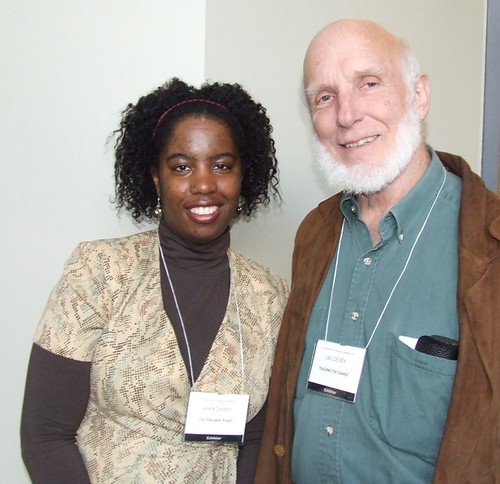
Unlike with the 150th anniversary of the Civil War, . . . few historic places tell us what happened during Reconstruction. They could: Every plantation home had a Reconstruction history, often fascinating, but these manors remain frozen in time around 1859. They tell a tale of elegance and power, and Reconstruction was the era when that power was challenged. Moreover, it is still true, as W. E. B. Du Bois put it in Black Reconstruction, 80 years ago, that “one cannot study Reconstruction without first frankly facing the facts of universal lying.”
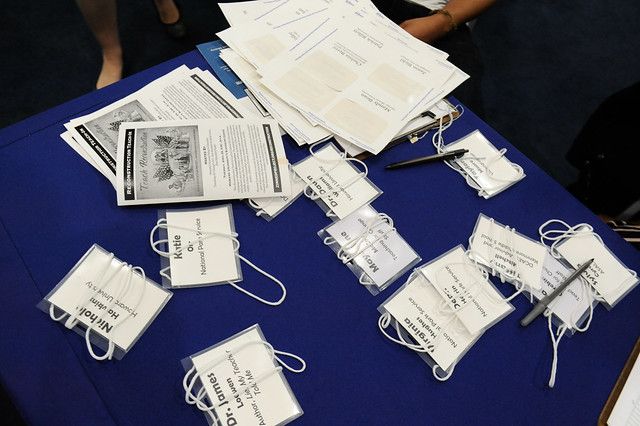
The U.S. history textbooks used in schools today make children stupid. This is the blunt conclusion arrived at by researcher Jim Loewen of the University of Vermont, who spent two years at the Smithsonian Institution cuddled up with 12 of the current major U.S. history textbooks — each averaging four and a half pounds and 888 pages. Sure, some of the books are better than others. Some incorporate insights from recent scholarship and offer the occasional nod to multiculturalism. But when the final bell rings, according to Loewen, “Students exit history textbooks without having developed the ability to think coherently about social life.” And given that more than five-sixths of all Americans will not take another U.S. history course after high school, this analytical incoherence may never be remedied. . . .
The core of Loewen’s critique is that because of the texts’ wretched portrayals of the past, students can’t help but be befuddled by the present. The books fail to consider why anything happens in society. Events appear as inevitable because, as Loewen found, the texts never indicate that throughout history there were choices, that people posed alternatives. Consequently, students are discouraged from thinking of the present as a place in history with different potentialities, dependent largely on how we analyze society and work for change.
Perhaps the greatest accomplishment of Loewen’s book is its insistence that we must take textbooks seriously as literature that imparts significant, often reactionary, messages. Lies asks who benefits and who suffers from particular versions of history-telling. And if its answers are not complete, Loewen’s book nonetheless forces us to think about the nature of our society and what is worth teaching about its origins.
Learning of his terminal illness a couple of years ago, Loewen rushed to complete a number of projects, including a short memoir and a new website, launched just a few weeks ago. Recognizing he would not get to everything on his list, he added a section to his website called Unfinished Projects in the hope that others would pick them up. In typical Loewen humor, his life story on the site includes everything from childhood stories to a photo of his tombstone. The site is also the home of his extensive database on Sundown Towns — sites where residents enforced a whites-only requirement for anyone after “sundown.” Loewen’s magnificent work on sundown towns has been especially valuable as people throughout the United States work to come to grips with how racism shaped our communities.
Loewen left a robust collection of books, articles, interviews, and generations of teachers he inspired to teach outside the textbook. We will miss him tremendously, but will continue to learn from and share his work, including many of the articles and books listed below.
More Photo Albums





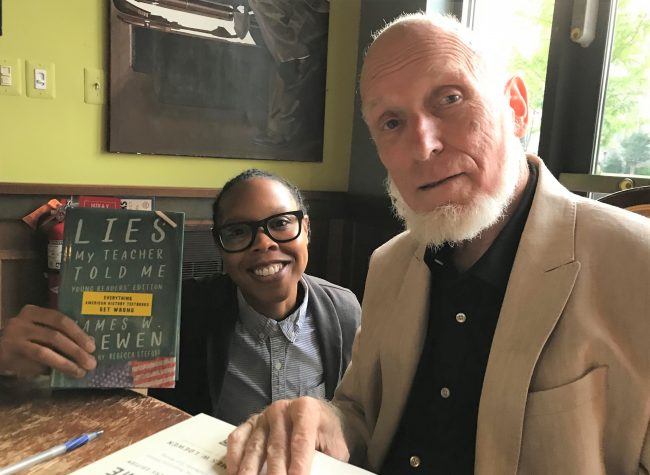
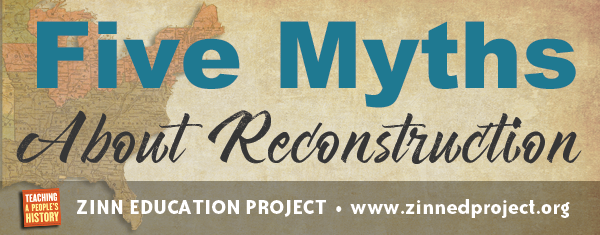
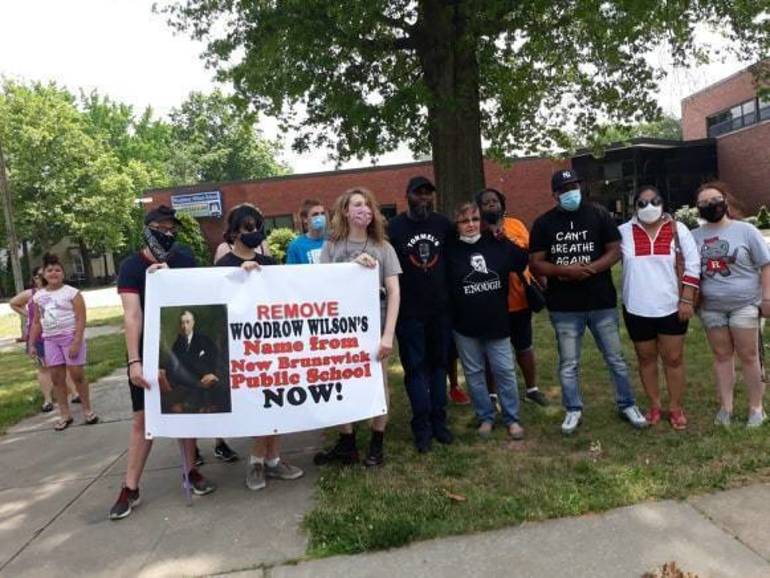
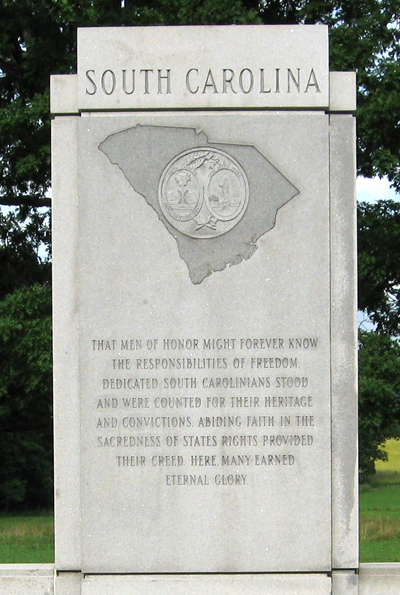
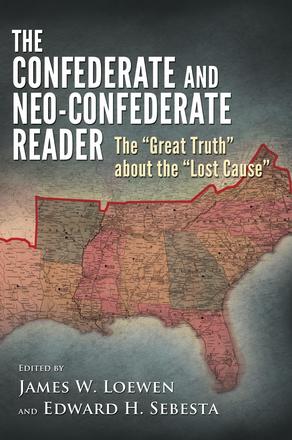
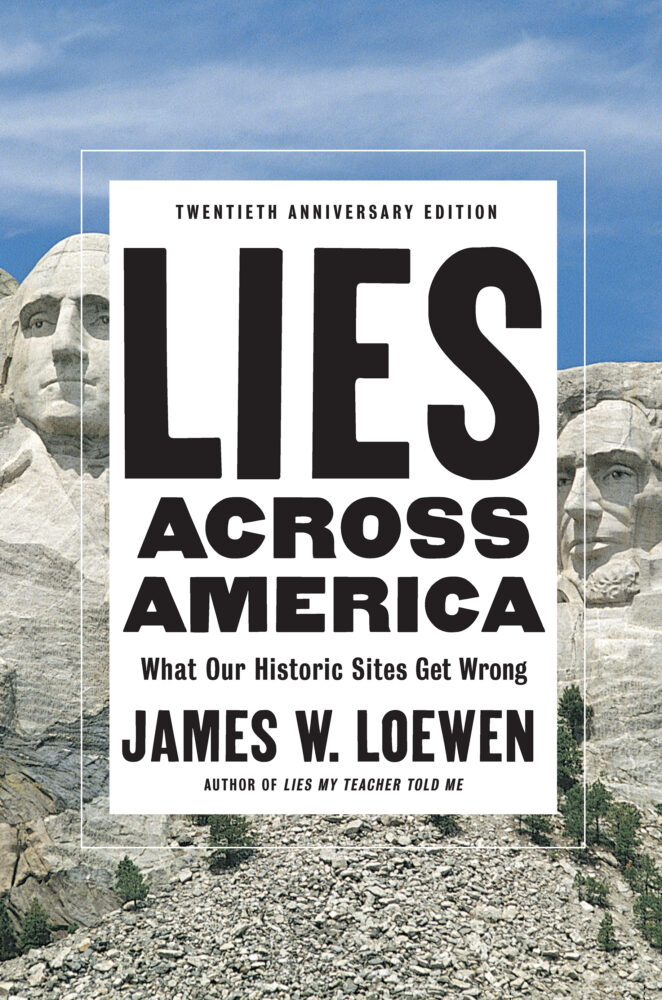
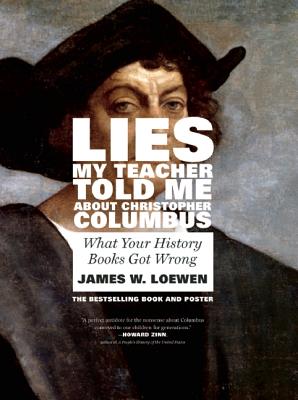
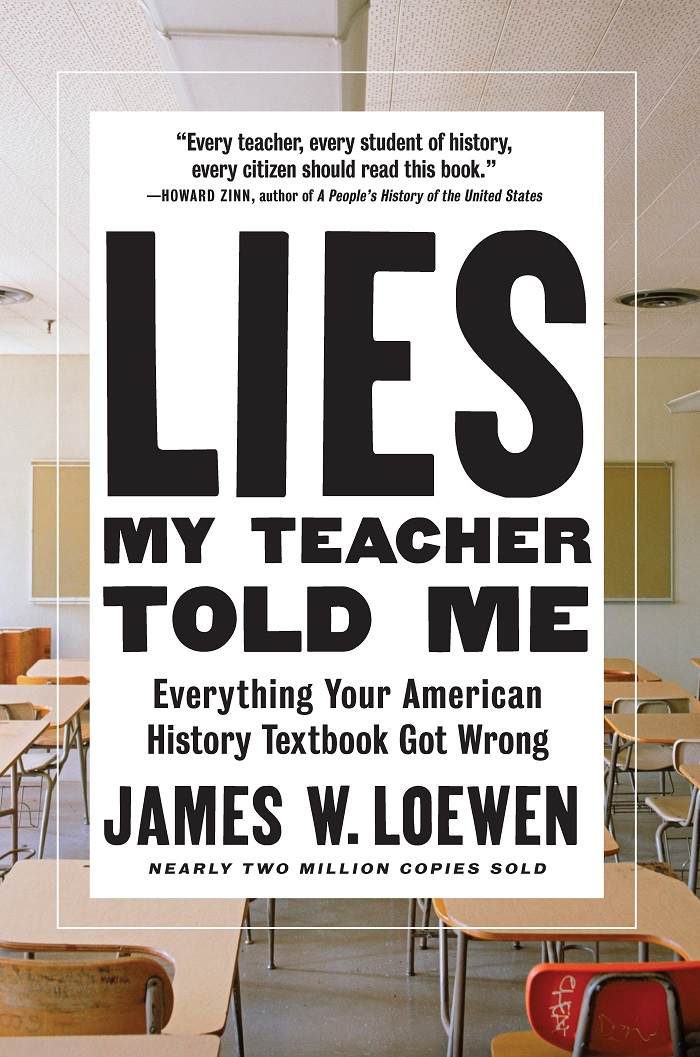
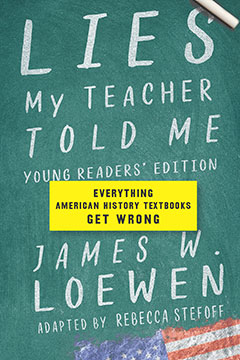
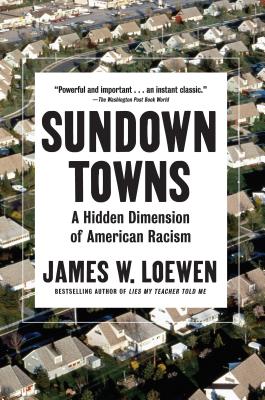





James Loewen — priceless! My history professor, and long time friend, Dr. Charles Eagles, wrote a book on him. I was introduced to Loewen about the same time I introduced myself to the works of Howard Zinn.
I asked my wife, a kindergarten teacher, to read the first 100 pages of Loewen’s Lies My Teacher Told Me. She had always had a “Pilgrims pancake” breakfast with her students and parents each year during Thanksgiving. That 100 pages sure changed her perspective!
Talk about kicked in the pants! I have been jacked up on Mountain Dew with history my whole life and those two (Loewen and Zinn) have added much to my love for the humanities and to humanity itself. Loewen was truly out of the box. Cheers to that man.
Years ago, in the late l970s, a Supreme Court faction, led by Justice Rehnquist, a consistent opponent of school desegregation, was trying to use the Columbus, Ohio case to drastically limit the powers of the courts under a policy, he called “incremental segregative effect” in which only the particular schools were there was a documented violation would be desegregated, many of which were now all black or Latino, thus rendering the entire effort to desegregate cities virtually impossible. The lawyers managing the case for the civil rights plaintiffs decided that it would be very helpful to have a brief from leading researchers in the field summarizing the key research on the nature and consequences of urban segregation. Jim Loewen was then connected to Bill Taylor’s Center for National Policy Review at the Catholic University. I worked with him in putting together the brief and contacting leading researchers, 38 of whom signed it. It was the first social science brief since the Brown decision. The effort to defeat the rollback succeeded and the dissolution of desegregation orders was prevented until the l991 Oklahoma City case, preserving major integration efforts for another generation of students before Reagan made Rehnquist Chief Justice and conservatives consolidated a strong reactionary majority with the appointment of Clarence Thomas that year. Loewen was, like Zinn, deeply commited to communicating a true vision of U.S. racial history.
A tremendous loss for all those seeking the truth about U.S. history. Over the 23 years I taught history in the NYC alternative high school division, I would prop Lies My Teacher Told Me— along with Zinn’s A People’s History — up against the chalkboard behind me. It was the only book over those years that a number of students actually went out and bought on their own — based on the title alone. Loewen made a major contribution to ‘Teaching What Really Happened’, the title of another of his popularly written accessible works. James Loewen will be sorely missed especially as right wing reactionary forces try to suppress critical thinking in our schools
While Jim Loewen is best known as an author and a scholar, he was many other things as well. For me he was a mentor, tutoring me the techniques of statistical analysis that I could use to analyze election results to help prove racial bloc voting in voting rights cases. He also was a boundary breaker who was not confined by disciplinary boundaries. Jim was unafraid to examine historical data to expose the racist basis of contemporary social structures. His analysis of American history always placed strong emphasis on “the nadir”–the period from the 1890s to 1920s when racism became deeply entrenched in all regions of the United States. While Jim was angry about the ways in which history was taught, he never lost his quirky sense of humor. Jim, we will miss you.
I had the good fortune to read Lies My Teacher Told Me one summer along with my son who was attending junior high school at the time. The discussions that book prompted changed both of our lives. I am forever grateful to Mr. Loewen. RIP